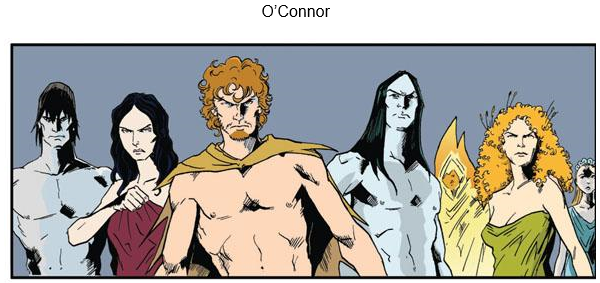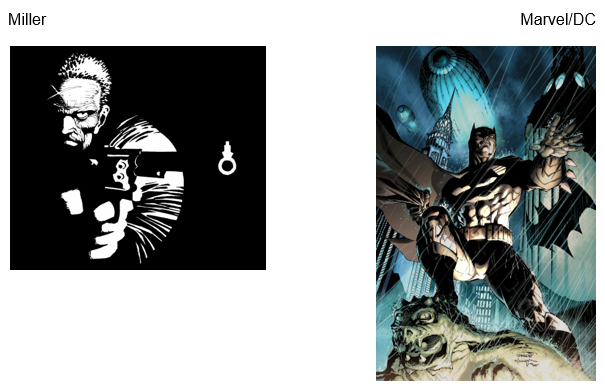Introduction: Welcome to the Olympus
Numerous authors have undertaken countless attempts to retell the original Greek mythology. Some have succeeded; however, creating anything new out of the stories that have been re-told billions of times is very hard. One of the few people who handled this task, George O’Connor put Zeus and other Greek mythological characters in a comic book setting.
Zeus: King of the Gods (Olympians)
By George O’Connor
Paperback, 80 pages, Published in 2010, First Edition.
ISBN-10: 1-59643-431-7 / 1596434317
ISBN-13: 978-1-59643-431-8 / 9781596434318
Plot Summary: Zeus’s Life in Eighty Pages
George O’Connor has decided to take a different approach towards traditional storytelling and out the famous Greek mythological characters into the setting of a comic novel. Thus, he managed to retell Zeus’s life in eighty pages, yet retaining the original flair of the ancient stories and mentioning every single detail that appears in the traditional stories.
Even though the line between god and people was blurred by the Greek narrators originally, which showed in portraying the Greek gods with typically human features and sins, i.e., vanity, wrath, envy, etc., O’Connor makes this line even less noticeable by telling the readers about Zeus’s youth – something that the traditional myths usually skip.
From the point at which Zeus rescues his siblings from his father Cronus, however, O’Connor follows the original myths quite closely, describing the war between the Titans and the Olympians, Zeus’s journey to find Cyclopes, his uncles, and his attempts to make the latter help him in his quest for saving his siblings from his gluttonous father.
Novel Analysis: Even Zeus Has Weaknesses
The obvious strengths of the novel come from the pictures. While the idea of creating a graphic novel is far from being new – according to Scott, Nyberg, and Fee, “graphic novels are a format, not a genre” (Scott, Nyberg, and Fee) and, therefore, can be viewed as reiterations of old stories – it still is refreshing and allows for great creativity. To his credit, O’Connor uses these opportunities to the full. To start with, the drawing style chosen by the author does not look anything like a traditional Miller’s or Marvel/DC Universe’s graphic novels:


Thus, O’Connor makes it clear that he takes his readers seriously and does not want to cash in on a recent surge of interest towards comic books and graphic novels. He uses different angles, a completely different drawing technique, and a very specific color palette to display the tiniest changes in the atmosphere or the characters.
Sadly enough, the negative issues stem from the chosen format as well. Unlike a typical novel, a graphic novel does not allow the reader to portray the characters the way (s)he sees them – the author imposes his vision on the reader. In addition, the idea of putting Zeus and the rest of the mythological characters in superhero suits might attract a younger audience, yet it will inevitably trigger the projection of typical superhero traits of character onto the leading ones, which is rather undesirable. Once the readers relate to Zeus and the entire Pantheon as typical superheroes, the key concept behind the traditional Greek myths, i.e., that being a god does not mean being flawless and completely virtuous, disappears, which is a real pity.
Conclusion: When Myths Revive
Therefore, the book can be considered a good choice to help the younger audience learn about traditional Greek mythology. In addition, it will be a rather enticing journey for an adult. However, considering the book an authoritative source for learning in-depth about Zeus and other mythological characters would not be a good idea.
Works Cited
O’Connor, George. Zeus: King of the Gods (Olympians). New York, NY: Neal Porter Books. 2010. Print.
Scott, Randall William, Amy Kiste Nyberg and William T. Fee. Graphic Novels and Comics in Libraries and Archives: Essays on Readers, Research, History and Cataloging. Jefferson, NC: McFarland. 2010. Print.